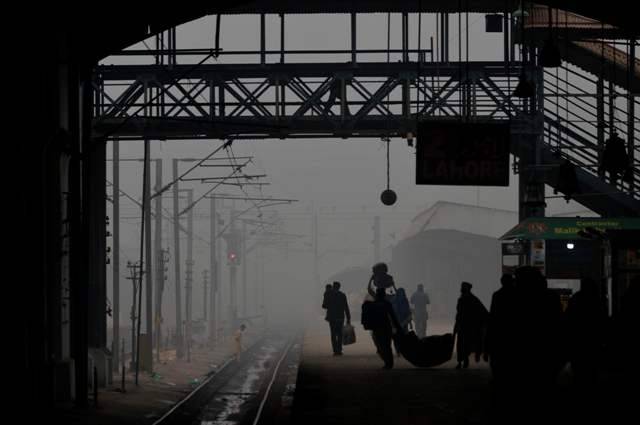Last year we were introduced to smog, we kept calling it fog until we were taught it was smog. Now that we know its smog, we are also labelling fog as smog. Problem is, we have been ignorant throughout, meanwhile agricultural waste, utilisation of low quality fuel and irresponsible behaviour of industrialists and polythene manufacturers were adding to worsen the situation. Stubble burning in Indian Punjab added fuel to the fire and Punjab, Khyber Pakhtunkhwa and India itself got affected by the pollutants.
This acute problem shows that Pakistan and India have much more to talk about other than politics as it’s a common matter of concern for the region. The matter cannot be resolved until talks are held across the border. Punjab government took an initiative by reaching out to the Indian side of Punjab administration through twitter.
Environmental hazards threaten our people & habitat. Let us act fast on countering it.@PMOIndia @capt_amarinder @ForeignOfficePk @pid_gov pic.twitter.com/urzJ8JZXwg
— Govt Of The Punjab (@GovtOfPunjab) November 5, 2017
However, the Indian side is yet to respond.
Indians will burn agri waste anyway, they are less interested in their safety, more interested to harm us.
— Wajeeha Ahmad (@wajeeha_ahmad) November 8, 2017
Glad that @GovtofPunjab raised voice against stubble burning in Indian Punjab.#Smog
— Farrukh Shahbaz (@ItsFSW) November 8, 2017
I hope @GovtofPunjab is going to take Indian govt to cleaners.
— Izah Shahid (@izahshahid) November 8, 2017
Smog is a long term problem. The government is fully aware of the situation and has chalked out its plan to counter it. A decade ago people were worried about air pollution, but by introducing alternative transport projects that are environment friendly like the Orange Line, new LTC buses that use gas and other Euro 2 and 3 standard buses that uses quality fuel, the government is moving in the right direction. Mass transit is an absolute alternative for over populated roads, would reduce pollution while saving cost, time and nature either. Government has also imported a massive machine, the tree spade from the United States to relocate fully grown trees from one place to another. Wherever they need to cut down a tree for any developmental project, ten trees are planted in place of any tree that is cut down. But the changes cannot happen overnight, individual as well as collective input will ensure complete eradication of smog and global warming.
The immediate actions taken in wake of the problem include banning of rice stubble burning where 280,000 farmers have been briefed to use alternative ways of crop burning, introduction of low sulphur fuels, adoption of Euro 2 standards for vehicular emissions, installation of vehicular pollution control devices, monitoring of air quality, controlling of furnace smoke, health assessment to gather data on health impacts of smog, controlling fugitive dust from road shoulders and construction sites. Environment protection department has been directed to conceive and implement projects for greening of existing industrial units by removing technological or financial barriers. The same department is working with forest department to identify suitable tree species. During canal road widening project new trees were planted in place of the small trees that were cut, while 150 old trees were transplanted using 'Tree Spade' machine. In addition to that during 2016-17, 110,000 trees were planted alongside canal.
Other than this, LWMC washes 70km of roads daily, Instructions has been issued to LDA, Ring road, Mass transit and Safe cities authorities to control dust. 236 polluting factories have been closed, FIR has lodged against 60 factories. Along with that, 16,211 vehicles are fined, 1347 are forbidden to run on road. Upon CM Punjab's instructions 25 points in Lahore are made signal free to avoid traffic congestion, work on 22 points will done soon. Punjab government has already banned two stroke vehicles.
Urban development is a challenge and opportunity at the same time, but the battle against climate change and health will either be won or lost. However, the way provincial government eradicated dengue from the province, it is expected that they are on their way to make Punjab an environment friendly province.






